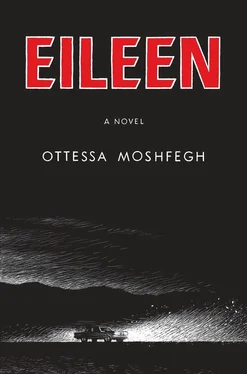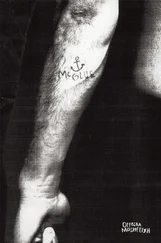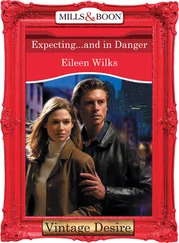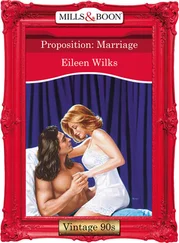Something struck me as I watched Randy scratch his elbow, then lean against the door frame of the visitation room: I was no longer in love with him. Looking at him with eyes now glazed over in my new affection for Rebecca, he seemed like a nobody, a face in a crowd, gray and meaningless like an old newspaper clipping of a story I’d read so many times, it no longer impressed me. Love can be like that. It can vanish in an instant. It’s happened since, too. A lover has left the warm rapture of my bed to get a glass of water and returned only to find me cold, uninterested, empty, a stranger. Love can reappear, too, but never again unscathed. The second round is inevitably accompanied by doubt, intention, self-disgust. But that is neither here nor there.
When James returned, the boy he was guiding up the hall was, to my great surprise, Leonard Polk. Leonard walked casually, almost jauntily with his hands cuffed behind his back. He was taller than I expected, and loose limbed with that awkward softness young men have before their bodies harden. There was a strange bounce in his step. His face was bright and relaxed, awake and serene in a way no other boy’s face had ever seemed, a loose reservedness which I found myself admiring. He looked pleased, impenetrable, and cold as though nothing could ever disturb him, and yet still as innocent as the silent creature I’d seen earlier touching himself absentmindedly on his cot in the cave. I searched for something in his face, anything his mask of contentment might betray, but there was nothing. He was a genius in that sense — a master. His was the best mask I’d ever seen.
James ushered him by the glass wall of the waiting area. When they passed Mrs. Polk on the other side, Leonard smiled. I imagined this boy in his parents’ darkened bedroom, standing over his sleeping father with a kitchen knife, moonlight flickering on the blade like lightning as he brought it down hard and fast, tearing across the man’s throat. Could this strange, supple creature have done such a thing? Randy took him into the visitation room, set him in the chair, undid his cuffs, and stood in the doorway.
“Mrs. Polk?” I called out.
The woman rose from her seat in the waiting area and came toward me. I remember this first vision of her with excellent clarity, though she was utterly unremarkable. She wore sharply creased black trousers, tight around her swollen thighs. Her sweater looked like an afghan blanket, the different colored squares lined up over her chest and large gut. She was repugnant, I thought, in her fat and dishevelment. She was not an obese woman, but she had quite a paunch and seemed bloated and tired and nervous. She walked stiffly, shifting from side to side with each step as some fat people do, and carried a brown coat over her arm, no purse. As she entered the room I noticed some white pieces of fluff stuck in the back of her frizzy hair, which was pulled tight into a bun. Her lipstick was a cheap and insincere fuchsia. I stared steadily at her face, trying to determine what sort of intelligence was there. Since she was overweight, I assumed she was an idiot — I still tend to judge those types as gluttons, fools — but her eyes were clear blue, sharp, with the same strange twist as her son’s. I saw the resemblance in the eyes, the freckles, the pouty lips. She looked nervous handing her coat to Randy as I patted her down. My palm landed with a thud on the small of her back, which was soft and wide. I stifled an odd impulse I had to embrace her, to try to comfort her a little. She seemed so dowdy, so pitiful, like a sow awaiting slaughter.
“All set,” I told her. She took her coat back from Randy and sat across the table from Leonard, or Lee, as he was called. Mrs. Polk was shifty-eyed. The boy just smiled. I looked from mother to son. If Rebecca’s theory of Oedipus was correct, perhaps I had grossly misjudged what kind of women young men found attractive those days, because Mrs. Polk was nobody I could imagine anyone would kill for. Then again, maybe Lee Polk was out of his mind. It was impossible to tell what he might be thinking. His mask didn’t waver. It was not my stony, flat mask of death, nor was it the stiff, cheerful posturing popular among housewives and other sad and deranged women. It was not the cutthroat bad boy mask set to ward off potential threats with the promise of violence and hot rage. Neither was it the lily-sweet bashfulness of men who pretend they’re so weak, so sensitive, they would crumble if anyone ever challenged them even a little. Lee’s look of calm contentment was an odd mask, peculiar in its falseness as it hardly looked fake at all.
In an effort to keep from crying, it seemed, Mrs. Polk pinched her eyes shut and exhaled. After a moment she folded her hands and placed them on the table, opened her mouth to speak. But then, from down the hall, loud clicking footsteps made us all stop and turn. It was Rebecca. Here she came strutting toward us. She carried her notebook in one hand, a cigarette in the other. Mrs. Polk, Randy and I all froze as she approached, a wobbly silhouette at first, and then a vision in lavender, loose russet hair bouncing around her shoulders. When she got closer, she was serious, quiet, and I saw that her fingers clutched her notebook like the legs of a lizard grappling a rock. There was something tense about her. She tried to smile, her eyes nervous and glittering. She was human and neurotic underneath that beauty, after all. That was comforting. The coincidence of her timing struck me. Had she invited Mrs. Polk? What had Rebecca done with Leonard’s file? She nodded to me and Randy and stood between us in the open doorway, holding the notebook close to her body. As she watched mother and son sitting there, she wrote continuously without looking down at the paper, ashing her cigarette absentmindedly at the floor as it burned down to her fingers.
Mrs. Polk kept her nose in the air as she spoke. I don’t remember what she said to him, but it wasn’t much. Such and such about his cousins, maybe something about money. Nothing important. Her son remained silent. At some point Mrs. Polk sighed, frustrated, and stared off at the wall in exasperation. When I tried to peek under Rebecca’s hand to read what she’d been writing, it looked like chicken scratch. Since I’d never seen shorthand before, I assumed it was simply nonsense, lines on a paper she’d made so as to appear that she was taking notes. I didn’t understand it. Dr. Frye, when he’d come to observe the family visits, had never taken notes. I wondered, of course, why Rebecca was there at all. Dr. Bradley never made a single appearance.
After a minute of silence, the boy staring at his mother’s hands on the table between them, Mrs. Polk lifted her face, looked Lee straight in the eyes. Her wrinkles were long and saggy, as though her face had once been bigger, fuller, but had been deflated, leaving deep folds dug like trenches. She began to cry. If I heard what she said, I don’t remember it precisely, but I assumed the gist of it was, “How could you do this to me?” her voice plaintive and soft. Then she cleared her throat and grunted aloud. Her hands were small and red and cracked, I saw as she pulled out a tissue. She blew her nose into it, then balled it up like an angry child and stuffed it violently back in her pocket. In that moment, she reminded me of my mother and her quick switches, how one minute she’d be sunshine and singsong and the next she’d be cursing in the basement at the laundry, kicking at the walls. It was that kind of duplicity: talking one way but acting another. Rebecca had stopped scribbling and was leaning on one leg, twisting her opposite heel into the floor, stubbing out her cigarette. Randy looked at that arrant, flirtatious foot out of the corner of his eye, or at least I think he did. Rebecca had her pencil in her mouth, and when I turned to face her, I saw her tongue well up and a bubble of saliva burst as her teeth closed down on the pencil’s eraser tip. To see inside her open mouth like that, the mouth of a child, clean, pink, bubbling with youth and beauty, hurt me deeply. I burned with envy. Of course Randy would choose Rebecca over me. She was easy to love. I donned my death mask, bristling underneath with shame. When Lee’s seven minutes were up, I knocked on the door frame and Randy motioned to Rebecca to step aside so that Mrs. Polk could exit. But first Mrs. Polk made sure to let a few tears splat on the table, and then said, more to us than to her son, “I blame myself.” Lee looked up at the clock, unfazed.
Читать дальше












